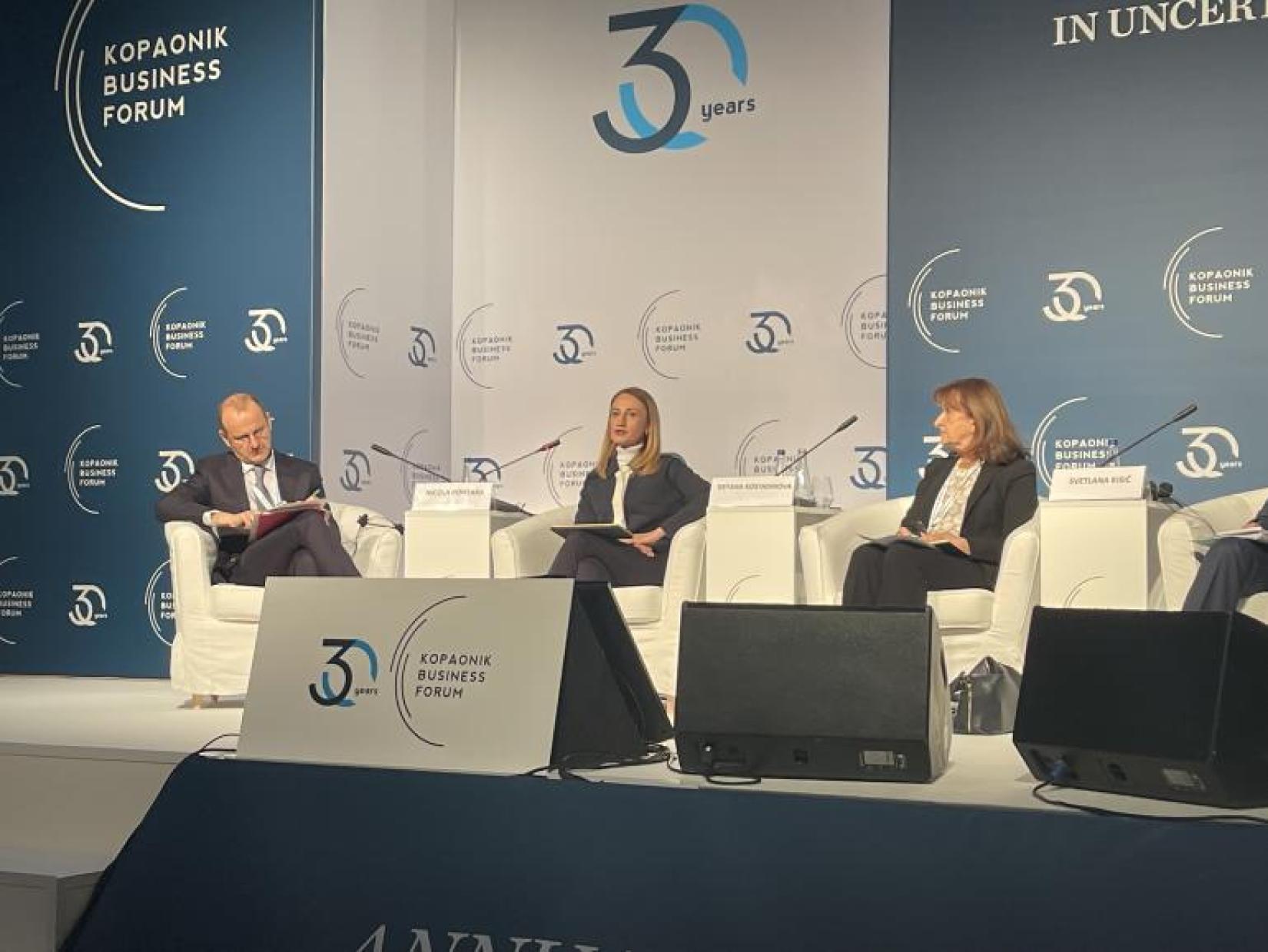Serbia’s future depends on investing in children and young people
07 March 2023
Kopaonik, 7 March 2023 - “Poverty experienced in childhood has particularly severe effects on children’s development and life prospects. The impact on the individual child is huge, but neglecting children additionally fails to build the human resources needed for sustained economic prosperity of the country”, Deyana Kostadinova, UNICEF Representative in Serbia, concluded at the Human Capital for Growth and Productivity in Serbia panel at the Kopaonik Business Forum.

The panel was moderated by Nicola Pontara, the World Bank Country Manager for Serbia, while the other participants included Svetlana Kisić from the Serbian Association of Economists, Richard Record, World Bank Lead Economist for the Western Balkans, and Xiaoqing Yu, World Bank Director for the Western Balkans.
By 2030, the proportion of the population aged 65 or above in Serbia is likely to increase from an already high 21 per cent to 24 per cent. The latest census shows that Serbia’s population has decreased by almost half a million in the last 11 years.
Serbia took measures to address this challenge through current policies to boost fertility rates. As lower-income households tend to have higher fertility rates and are more likely to respond to financial incentives for family planning, the new labour market entrants will increasingly come from poor and vulnerable backgrounds. Estimates suggest that by 2030 some 30 per cent of new labour market entrants in Serbia will be from vulnerable and minority backgrounds.
“UNICEF’s poverty projections on the impact of the war in Ukraine show that in 2023 absolute child poverty will increase in Serbia with nearly an additional 28,000 children living below the absolute poverty line.
These figures require a strong and urgent response if we want to ensure that Serbia will have human capital able to contribute to the country’s growth and prosperity. Now is the time for action! This means the implementation of policies that provide children, independently of their origin and background, with good education opportunities that ensure effective and affordable health care, and support to vulnerable households with effective poverty-targeted and social protection programmes. It means investing in every child!” stated Deyana Kostadinova, UNICEF Representative in Serbia.
The ongoing economic crisis will make raising public spending a challenge. It will thus be essential to at least protect current expenditure levels in human development and focus on closing equity gaps. Reforms in the size, structure and efficiency of public expenditures could help Serbia to overcome the challenges of ageing, low productivity, and inequality.



